Filter by

The Financial Crisis
This book brings together a good mix of academics and practitioners for a discussion that focuses on how to change financial practice and the academic field of finance in order to understand the current financial crisis and deal with future turbulent financial times. The volume is based on contributions by prominent academics and practitioners from Europe, Asia and the USA. The book contains se…
- Edition
- 1
- ISBN/ISSN
- 978-3-319-20588-5
- Collation
- XI, 175, 3 b/w illustrations, 22 illustrations in colour
- Series Title
- -
- Call Number
- -
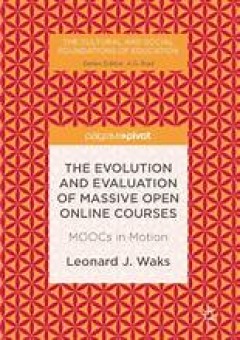
The Evolution and Evaluation of Massive Open Online Courses
This book offers a re-assessment of the educational and occupational value of MOOCs based on developments since 2013. When MOOCs appeared--amidst great fanfare in 2012, leaders proclaimed an educational “revolution.” By 2013, however, dramatic failures, negative research findings, and sharp critiques ended the MOOC hype. This book examines both MOOCs and prior distance learning innovations,…
- Edition
- 1
- ISBN/ISSN
- 978-1-349-85204-8
- Collation
- XVII, 136
- Series Title
- The Cultural and Social Foundations of Education
- Call Number
- -

The Education Systems of Europe
This updated second edition presents an analytical description of the education systems of all European countries, following common guidelines. These conceptual guidelines consider various criteria concerning presumptions as to the quality of a good education system. One of the book central aims is to explore the paradoxical character of education, i.e. the relationship between universal values…
- Edition
- 1
- ISBN/ISSN
- 978-3-319-07473-3
- Collation
- XX, 908, 46 b/w illustrations, 1 illustrations in colour
- Series Title
- Global Education Systems
- Call Number
- -

The Ecology of Home
Education researchers worldwide face a basic question: Is their purpose to use people to develop knowledge, or use knowledge to develop people This book offers an exploration to this fundamental question by examining what three core disciplines – ecology, economics, and ecumenism – have in common. These disciplines have roots in the ancient Greek notion of the household (oikos). By examini…
- Edition
- 1
- ISBN/ISSN
- 978-94-6300-579-1
- Collation
- XVI, 106
- Series Title
- Researching Environmental Learning
- Call Number
- -
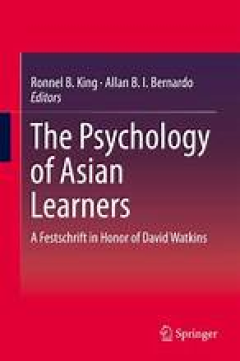
The Psychology of Asian Learners
This book celebrates the scholarly achievements of Prof. David A. Watkins, who has pioneered research on the psychology of Asian learners, and helps readers grasp the cognitive, motivational, developmental, and socio-cultural aspects of Asian learners learning experiences. A wide range of empirical and review papers, which examine the characteristics of these experiences as they are shaped by b…
- Edition
- 1
- ISBN/ISSN
- 978-981-287-576-1
- Collation
- XXVI, 664
- Series Title
- -
- Call Number
- -
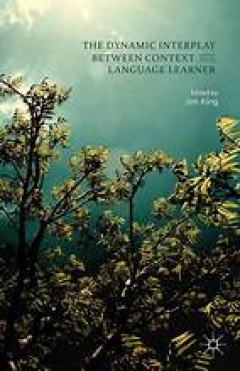
The Dynamic Interplay between Context and the Language Learner
This edited volume offers a series of state-of-the-art conceptual papers and empirical research studies which consider how contextual factors at multiple levels dynamically interact with individuals to influence how they go about the complex business of learning and using a second language.
- Edition
- 1
- ISBN/ISSN
- 978-1-137-45713-4
- Collation
- XIX, 251
- Series Title
- -
- Call Number
- -

The Contested Role of Education in Conflict and Fragility
"This book brings together new thinking on education’s complex and evolving role in conflict and fragility. The changing nature of conflict, from inter- to intra-state, and with shifting geopolitical power balances, demands a reconceptualization of where education is positioned. Claims that education on its own can be an agent of conflict transformation are disputed. Deliberate attempts at pe…
- Edition
- 1
- ISBN/ISSN
- 978-94-6300-010-9
- Collation
- VIII, 266
- Series Title
- The World Council of Comparative Education Societies
- Call Number
- -
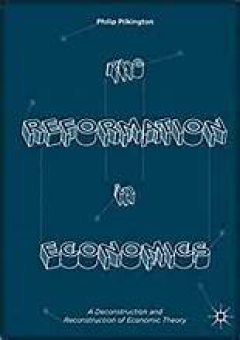
The Relevance of Academic Work in Comparative Perspective
This book is the first of two volumes that look at the changed landscape of higher education and the academic profession. This volume focuses on academic work, examining the significant changes that have taken place in the backgrounds, specialisations, expectations and work roles of academic staff. The academic profession is ageing, and becoming increasingly insecure, more accountable, more int…
- Edition
- 1
- ISBN/ISSN
- 978-3-319-11767-6
- Collation
- X, 252, 16 b/w illustrations, 18 illustrations in colour
- Series Title
- The Changing Academy – The Changing Academic Profession in International Comparative Perspective
- Call Number
- -

The Proceedings of the 12th International Congress on Mathematical Education
This book comprises the Proceedings of the 12th International Congress on Mathematical Education (ICME-12), which was held at COEX in Seoul, Korea, from July 8th to 15th, 2012. ICME-12 brought together 3500 experts from 92 countries, working to understand all of the intellectual and attitudinal challenges in the subject of mathematics education as a multidisciplinary research and practice. This…
- Edition
- 1
- ISBN/ISSN
- 978-3-319-12688-3
- Collation
- XVIII, 648, 62 b/w illustrations
- Series Title
- -
- Call Number
- -
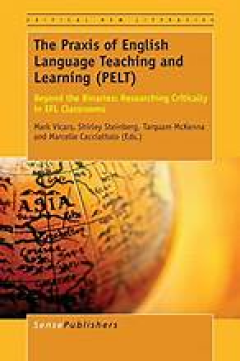
The Praxis of English Language Teaching and Learning (PELT)
This edition of Critical New Literacies: The Praxis of English Language Teaching and Learning (PELT) begins with an examination of bricolage as a way to engage in critical research in TEFL/TESOL teaching and research. The volume considers the quality of ‘encounter’ needed in the global and intercultural classroom. The authors address validity, reliability and an authentic need for research …
- Edition
- 1
- ISBN/ISSN
- 978-94-6300-112-0
- Collation
- VI, 162
- Series Title
- Critical New Literacies: The Praxis of English Language Teaching and Learning (PELT) Critical New Literacies: The Praxis of English Language Teaching and Learning (PELT)
- Call Number
- -
 Computer Science, Information & General Works
Computer Science, Information & General Works  Philosophy & Psychology
Philosophy & Psychology  Religion
Religion  Social Sciences
Social Sciences  Language
Language  Pure Science
Pure Science  Applied Sciences
Applied Sciences  Art & Recreation
Art & Recreation  Literature
Literature  History & Geography
History & Geography